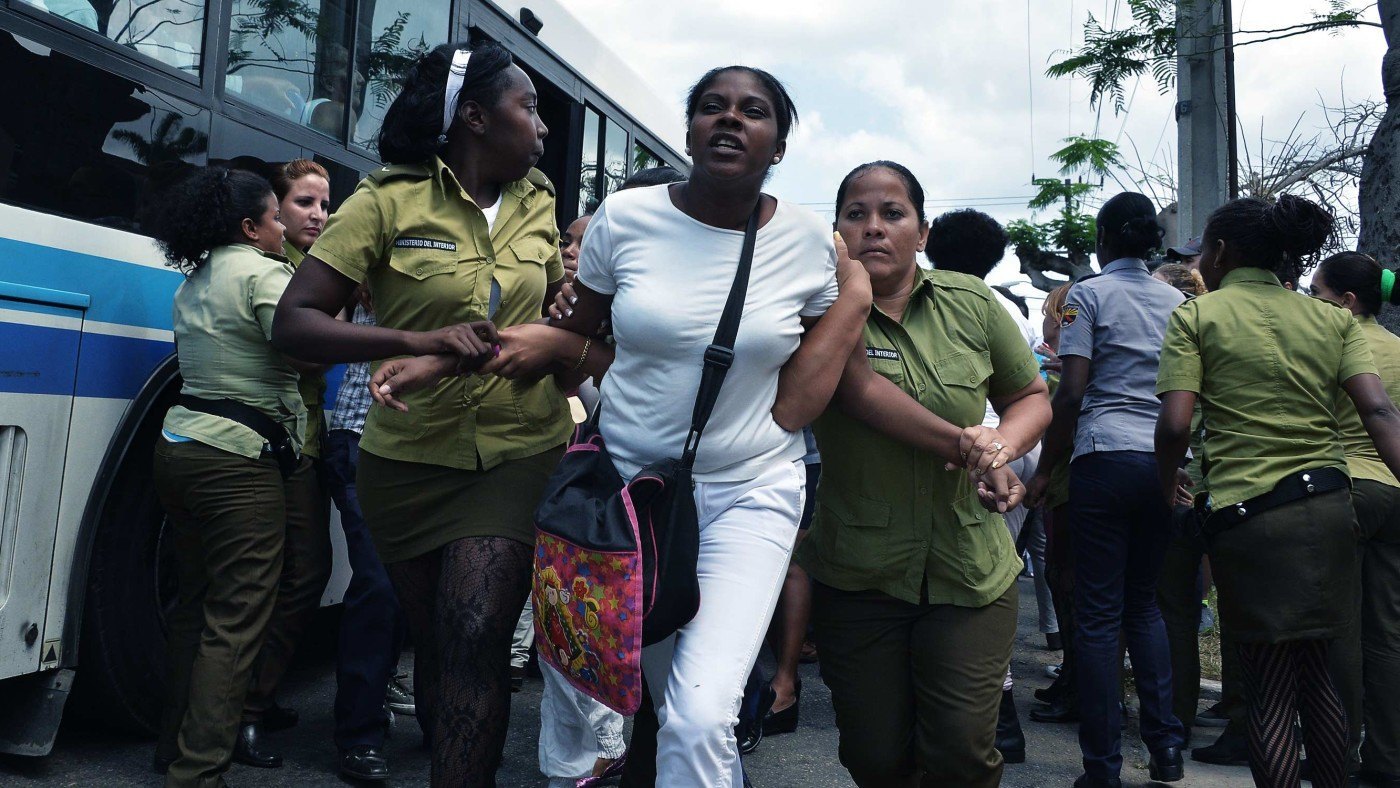During President Barack Obama and Raúl Castro’s joint conference in Havana, a daring journalist asked the communist leader about Cuba’s political prisoners. Raúl’s response: “Did you ask me if we had political prisoners? Give me a list of political prisoners and I will release them immediately… they will be released before tonight ends.”
The night passed and none of Cuba’s political prisoners were released.
The fact that no prisoners were released should come as no surprise. After all, the Castro regime denies the existence of political prisoners on the island. Regime officials claim that individuals believed to be political prisoners are in fact either armed counter-revolutionaries or ordinary criminals. The Castros have even claimed some are mercenaries working for the US.
In reality, Cuba does have political prisoners – and has had them since Fidel Castro’s 1959 Revolution. A list compiled by the Victims of Communism Memorial Foundation and the Cuban Democratic Directorate names 51 prisoners that are currently held by the Cuban regime for political reasons. Other human rights organizations, such as the Association of Ex-Political Prisoners in Cuba, the Patriotic Union of Cuba, and the Cuban Commission for Human Rights and National Reconciliation, believe the number of political prisoners is closer to 120. It is hard to tell the actual number of prisoners, as human rights groups are prevented from accessing the island’s prisoners.
The widely held definition of a political prisoner, as defined by the Parliamentary Assembly of the Council of Europe, includes the following criteria:
1. If the detention violates freedom of thought, conscience and religion, freedom of expression and information, and freedom of assembly and association.
2. If the detention has been imposed for purely political reasons without connection to any offense.
3. If, for political motives, the length of the detention or its conditions are clearly out of proportion to the offence the person has been found guilty of or is suspected of.
4. If, for political motives, he or she is detained in a discriminatory manner as compared to other persons.
5. If the detention is the result of proceedings which were clearly unfair and this appears to be connected with political motives of the authorities.
In Cuba, most of those the regime considers as “criminals” fit into one or more of these categories. Take for example former political prisoner Danilo “El Sexto” Maldonado Machado, who was arrested for an artistic stunt that consisted of painting the names of Raúl and Fidel on pigs. Consider Alexander Palacios Reyes and Felipe Martin Companioni, both arrested for distributing fliers calling for the release of political prisoners. In a uniquely Orwellian case, Armando Valladares and Oscar Elias Biscet were arrested for refusing to put a sign on their desks that said “I’m with Fidel”.
This week, for the first time in 88 years, a president of the United States visited Cuba. Yet his visit has coincided with an increase of political arrests in the communist island. Since the opening of relations in December of 2014, the number of political detainments in Cuba has drastically grown. In 2015, over 8,616 Cuban dissidents were detained, according to the Cuban Commission for Human Rights and National Reconciliation. In the first two months of 2016 alone, over 2,555 Cubans were arrested for political reasons. Just last week, 304 dissidents were arrested.
The arrests do not stop there. Just hours before President Obama landed in Havana, more than 50 peaceful protesters, including members from the dissident group Ladies in White, were arrested. On what grounds? Speaking out against the Castros, calling for the release of the island’s prisoners of conscience, and demanding democratic elections. While Obama attended a state dinner held at the Palace of the Revolution with Raúl, at least a dozen Cubans were arrested – all critics of the regime. These same tactics were used during Pope Francis’s and Secretary of State John Kerry’s visit last year.
Sadly, Raúl Castro seems eager to dismiss Cuban political prisoners, and with his comments on Tuesday he attempted to deceive the world about the character of any communist rule. Even his counterpart, President Obama, failed to acknowledge the island’s political prisoners or even question the situation in Cuba. It is important to acknowledge Cuba’s political prisoners. Talking about the reality of the communist island is what will (eventually) set the Cuban people free.


